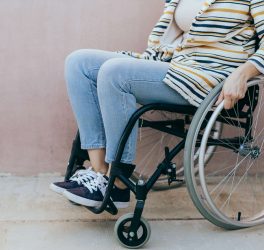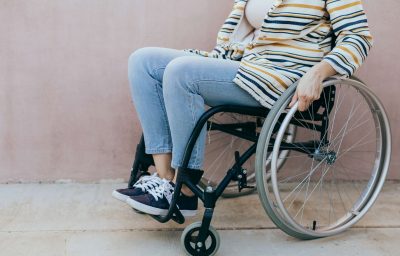
A recent study by Monash University has highlighted the benefit for pregnant women with multiple sclerosis who continue with a disease modifying treatment during and after pregnancy.
Using data from the international MSBase registry, the findings published in Neurology, revealed that women with MS who continued to take natalizumab (Tysabri) through and after their pregnancy had a decrease in relapse rates by up to 89 per cent. In contrast, women with MS who stopped taking natalizumab (Tysabri) and another therapy, fingolimod (Gilenya), before conception had an increase in relapse rates.
Led by senior research fellow Dr Vilija Jokubaitis from the department of neuroscience at Monash Central Clinical School, the study is the first to show how well the disease can be controlled through and after pregnancy if women are appropriately managed on this therapy.
“Pregnant women are excluded from randomised-controlled trials of disease-modifying therapies and there is limited trial evidence to inform management through pregnancy and postpartum. Being able to analyse this data is incredibly valuable in providing evidence to change practice in clinical management of women with MS,” Dr Jokubaitis said.
In the past, women with MS were advised to stop taking any MS medications in order to conceive. However, with such variability in how long conception might take, women were at increased risk of their disease activity returning whilst trying to become pregnant, often with terrible neurological consequences for the mother.
First author and PhD student, Dr Wei Yeh, who is also a neurologist at The Alfred hospital, added: “Relapse rates were previously thought to decrease during pregnancy among women with MS. However, our study shows that this is not the case for a subset of women with more active disease, who experience increases in relapse rates during pregnancy. These observations are important to guide our discussions and treatment strategy with the aim of minimising relapse risk.”
The study incorporated 1,619 women with MS who had 1,998 pregnancies conceived after 31 December 2010. This group was then compared to pregnancies conceived before 2005 up to 2010, looking at relapse rates before, during and after pregnancy to see how relapse rates and use of disease modifying treatment have changed over time, as there has been a significant increase in the number of more effective MS treatments over the past 15 years.
Among the first was natalizumab, which was initially approved by the FDA in 2004 and then later in Australia by the TGA in 2006 before being PBS listed in 2007. Other newer treatments include fingolimod (TGA approved 2011) and dimethyl fumarate (TGA approved 2013). Prior to 2005, there were essentially only low-efficacy treatments available.
The rates of relapse in the one year before pregnancy were highest for women in the pre-2005 group and lowest in the post-2010 group, with the post-2010 group showing that relapse occurred in 12 per cent of pregnancies and 14 per cent after birth.
“Using the large dataset from the MSBase International Registry, our paper provides strong evidence that using natalizumab during and after pregnancy is one effective strategy to prevent relapse during these times. Proactive discussion around MS and family planning, and use of the most appropriate MS treatment before pregnancy are critically important,” Dr Jokubaitis said.
Dr Julia Morahan is Head of Research at MS Research Australia said “This study provides robust and much-needed evidence to support the use of this highly effective disease-modifying therapy during pregnancy and post-partum, to maintain neurological health for women at this critical time. MS Research Australia is proud to fund this internationally-recognised study that provides evidence towards improved care of mothers-to-be and new mothers with MS.”








